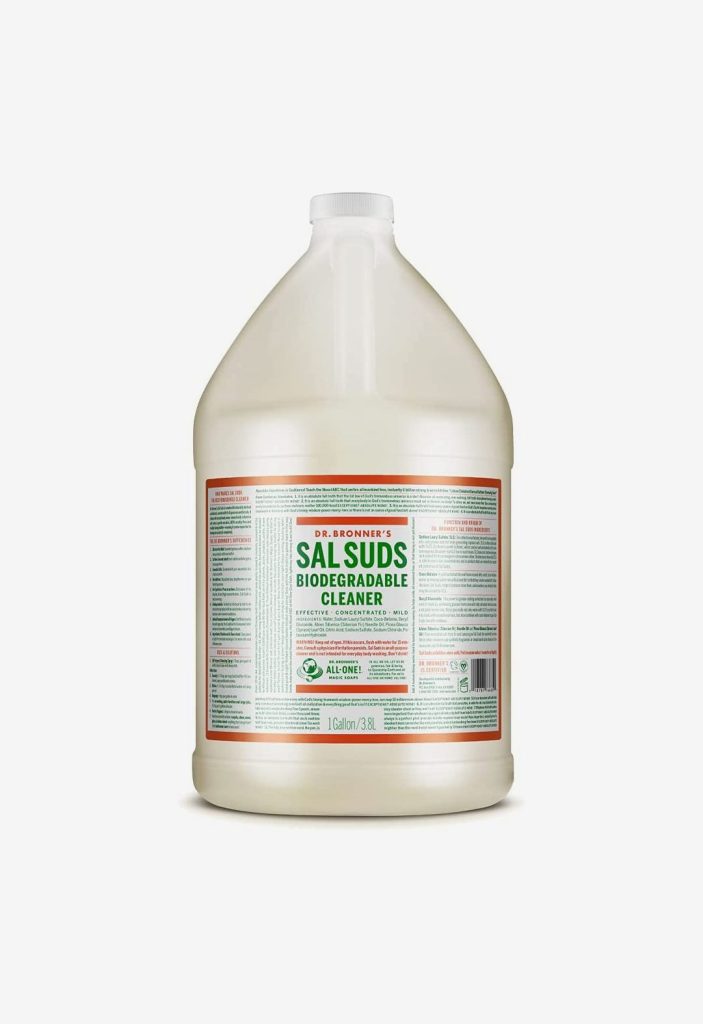How to Choose Sustainable and Effective Cleaning Products for Home Maintenance

Understanding Sustainable Cleaning Products
As we become increasingly aware of global environmental issues such as climate change and pollution, the demand for sustainable cleaning products is witnessing a significant increase. The shift towards eco-friendly cleaning solutions is essential not only for the health of our planet but also for our personal well-being. For many, the prospect of choosing cleaning products that are environmentally responsible yet effective can appear overwhelming, but this doesn’t have to be the case. By grasping fundamental features and benefits, selecting the right sustainable products can become a straightforward task.
In your quest for cleanliness, the right products can transform your home, ensuring you maintain hygiene while also contributing positively to the environment. Here are some vital factors to take into consideration:
- Ingredients: When selecting cleaning products, focus on those that boast biodegradable components. Ingredients derived from natural sources, such as vinegar, baking soda, and plant-based surfactants, are safe for both your family and the environment. Avoid products with harsh chemicals like phosphates and parabens, which can lead to adverse health effects and environmental degradation.
- Certifications: To guarantee that your choices align with eco-friendly standards, look for recognized certifications such as EcoCert, USDA Organic, or any local standards that reflect environmentally sustainable practices. Certifications lend credibility to products and provide assurance that they meet strict environmental and health guidelines.
- Effectiveness: It’s critical to ensure that your chosen products don’t just sit on your shelf looking good; they must deliver results. Researching reviews and seeking recommendations on how well a product tackles stains, cleans surfaces, or disinfects areas is essential. Effective products will not only encourage you to keep your space clean but will help build trust in sustainable options.
In Nigeria, a growing number of local brands are stepping up to offer eco-friendly cleaning solutions that cater specifically to our unique climate and cleaning needs. For instance, products made from neem oil are popular for their natural insect-repellent properties and are excellent for disinfecting surfaces. Local enterprises are also developing multi-surface cleaners and laundry detergents that prioritize sustainability while keeping affordability in mind. Supporting these brands not only ensures a cleaner home but also promotes the local economy and fosters job creation.
By making informed choices about the cleaning products you use, you can significantly contribute to a cleaner environment and a healthier lifestyle. Investigating sustainable options not only aids in improving your home maintenance routine but also aligns with a broader commitment to protecting our planet. Discovering and embracing these products reflects a conscientious step toward personal and environmental stewardship.
ADDITIONAL INSIGHTS: Expand your understanding here


Key Factors in Choosing Sustainable Cleaning Products
When it comes to choosing sustainable cleaning products, understanding what makes a product eco-friendly and effective is critical. Many consumers may be curious about how these products can not only maintain cleanliness but also protect the environment. Here are some essential factors to consider when making your choices:
- Packaging: Eco-friendly cleaning products often come in recyclable or biodegradable packaging, which minimizes waste. Opt for brands that reduce plastic use or those that offer refill options. This conscious choice helps to alleviate the plastic pollution problem affecting waterways and neighborhoods across Nigeria.
- Concentration: Concentrated cleaning products may require less packaging and fewer transportation resources, reducing their carbon footprint. When purchasing, look for products that are intended to be diluted as needed, allowing you to use only the amount necessary for effective cleaning.
- Multi-purpose Use: Cleaning products that serve multiple functions can help minimize the number of products you need to buy. For example, a single all-purpose cleaner can often replace several specialized products. This not only saves money but also helps reduce waste and the ecological impact of manufacturing and shipping numerous products.
- Local Ingredients: Supporting local brands that use indigenous ingredients can have a positive impact. For instance, products made from karite butter or shea extracts have been celebrated for their natural cleaning properties. These locally sourced ingredients often have the added benefit of being more sustainable due to reduced transportation emissions.
It’s also important to be aware of ingredients that are touted as “natural” but may still pose a risk to health or the environment. Some products claim to be eco-friendly while containing additives that can irritate skin or release harmful emissions. Therefore, scrutinize the ingredient list and look for transparency from manufacturers regarding the sourcing and safety of their products.
Beyond ingredients and packaging, consider the cleaning power of the products you choose. While avoiding synthetic chemicals is important, effectiveness should not be compromised. Many brands now provide detailed explanations of their cleaning formulas, showcasing how natural alternatives can rival those traditionally used in commercial settings. Websites and local reviews can offer consumers insights into how well these products perform in real-world scenarios, especially in the context of Nigerian homes and the specific cleaning challenges they face, such as humidity and dirt.
By weighing these factors and making informed decisions, you will not only enhance your home environment with effective solutions but also contribute to a more sustainable future. By choosing wisely, you can create a healthier indoor atmosphere while minimizing your ecological footprint.
| Category | Key Features |
|---|---|
| Eco-Friendly Ingredients | Non-toxic and biodegradable components |
| Packaging | Recyclable or refillable options reducing waste |
| Effectiveness | Proven cleaning power without harmful chemicals |
| Certifications | Third-party certifications verifying sustainability |
When navigating the myriad of cleaning products on the market, it is essential to consider more than just the shiny packaging or appealing scents. Look for products that utilize eco-friendly ingredients, which are often non-toxic and biodegradable. This can significantly reduce your home’s environmental impact and ensure the safety of your family. Packaging is another critical aspect; opt for brands that offer recyclable or refillable options. This choice can dramatically decrease plastic waste, aligning with greater sustainability goals. Additionally, it’s worth evaluating the effectiveness of these products. Many environmentally friendly options today boast proven cleaning power comparable to their chemical-laden counterparts, proving that you can maintain a clean home without compromising your environmental values.Lastly, always look for third-party certifications on labels to verify a product’s sustainability claims. These certifications can help guide your choices and ensure that you are making informed decisions about the cleaning products you bring into your home.
SEE ALSO: Click here to read another article
Understanding Certifications and Labels
To navigate the vast array of cleaning products on the market, consumers should familiarize themselves with various certifications and labels that indicate the sustainability and safety of cleaning products. For example, look for certifications like EcoLogo, Green Seal, and USDA Organic, which mark products that comply with stringent environmental standards. In Nigeria, you may also explore local initiatives that promote sustainable consumption, as certifications often expand to include region-specific programs.
Understanding what each of these labels means, however, is vital. A product that is certified organic might focus on agricultural ingredients but may still contain chemicals that could be harmful to your health or the environment. Thus, it’s crucial to assess not only the labels but also their implied meaning in the context of your cleaning needs.
The Role of DIY Solutions
Another compelling option in sustainable home maintenance is do-it-yourself (DIY) cleaning solutions. Many common household ingredients serve as effective and eco-friendly cleaners. For instance, a mixture of vinegar and baking soda can tackle grime effectively and is free from harsh chemicals. Similarly, essential oils like tea tree and lavender boast antibacterial properties, enhancing not only cleaning efficacy but also providing a pleasant aroma.
Exploring DIY solutions not only helps control what goes into the products you use but can also be cost-effective. By utilizing ingredients commonly found in most Nigerian households, you can whip up natural cleaners that rival store-bought variants in terms of effectiveness. An Internet search yields countless recipes, ranging from multipurpose sprays to bathroom cleaners that utilize ingredients you likely already have on hand.
The Importance of Educating Yourself on Water Safety
Access to clean and safe water is a growing concern across Nigeria, with some regions facing significant challenges regarding water quality. When selecting cleaning products, it’s essential to consider the impact on water systems. Using too many harsh chemicals in home cleaning can lead to runoff that eventually pollutes local water supplies. Thus, choosing biodegradable cleaning products while also being mindful of their environmental impact on water ecosystems becomes imperative for responsible home maintenance.
- Focus on Biodegradable Ingredients: Cleaning products that break down naturally help reduce contamination of waterways, ensuring that your cleaning habits do not contribute to broader environmental issues.
- Avoid Phosphates: Many commercial cleaning products contain phosphates, which can lead to water pollution and algae blooms. Seeking phosphate-free options plays a vital role in protecting aquatic life.
Local Availability and Support for Sustainable Brands
In your quest to choose sustainable and effective cleaning products, it’s also worthwhile to explore local brands that prioritize sustainability. By supporting local businesses that focus on eco-friendly practices, not only are you promoting a healthier environment, but you’re also contributing to the economic development within your community. Moreover, home-grown products may reduce the carbon footprint associated with transportation, reinforcing your commitment to a greener lifestyle.
Many Nigerian startups are dedicated to creating innovative cleaning solutions from sustainable sources. These businesses often promote transparency in sourcing and production processes, providing valuable information to consumers who wish to know more about what they are using in their homes.
By expanding your knowledge of both product certifications and DIY alternatives, alongside an acute awareness of water safety and support for local brands, you will be better equipped to choose cleaning products that align with both your home maintenance needs and environmental values. This understanding not only helps make healthier choices for you and your family but also promotes a more sustainable future for everyone.
ADDITIONAL INSIGHTS: Expand your understanding here
Conclusion
Choosing sustainable and effective cleaning products for home maintenance is not just about addressing immediate cleaning needs; it reflects a commitment to our health and the environment. By understanding the significance of product certifications and what they truly represent, you can make informed decisions that align with your sustainability goals. Embracing do-it-yourself (DIY) cleaning solutions can be both a creative outlet and a practical means to minimize expenses while controlling the ingredients you use in your home.
In Nigeria, where water safety and eco-friendly practices are critical, being conscious of your cleaning agents’ impact on local ecosystems becomes paramount. Opting for biodegradable products and avoiding harmful phosphates ensures that your cleaning habits contribute positively to community health and environmental preservation. Furthermore, by supporting local brands that champion sustainable practices, you actively contribute to economic growth and resourcefulness within your community.
As we navigate choices in the marketplace, it’s essential to prioritize a combination of efficiency and environmental stewardship. Adopting these practices not only enhances your living space but also promotes a greener future for generations to come. We invite you to explore and engage with the wealth of sustainable cleaning options available. By doing so, you are not just keeping your home clean – you’re helping to safeguard the planet for all.


